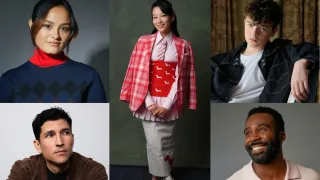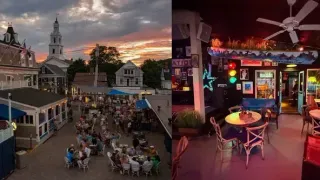June 5, 2016
Are Elders in the LGBT Community Welcomed into Aging Services?
Dr. Lyndall Hare READ TIME: 3 MIN.
Thirty years in the field of aging in Charlotte gives me an historical perspective on how we've done meeting the needs of LGBTQ elders and caregivers. In summary - sporadic at best.
We've witnessed courageous graduate students and colleagues doing fascinating research on what needs to be addressed to bring a semblance of inclusion into aging services - through training of staff in retirement communities and other services for older adults. We've expressed dismay about all the prejudices and ignorance, our field mirroring what's happening across the state with HB2 as an example. Oh, imagine how cumbersome it would be to adhere to its requirements in a retirement community!
We've heard from our LGBTQ friends about the lack of understanding and prejudice within our field, even though many working in this field identify as LGBTQ. Because the work we do with elders is sometimes so personal, it's even more important for us to be allies. A daughter caregiving for a gay father shouldn't have to explain to us that his husband has rights. We should know that already through some basic cultural sensitivity. I've witnessed first-hand in a nursing home setting dear friends of mine (one at the end of her life) being disregarded as a couple by staff members at such a critical time. And someone who is trans and needing full eldercare services in skilled nursing care has the right to be respected in the most vulnerable of care situations.
We're all aging and Charlotte's elder population is increasing. Many elders remark that they feel invisible, which often results in social isolation. And this invisibility may be even more pronounced as an LGBTQ elder. It's our responsibility in aging services to reach out to all elders in ways that are welcoming and inclusive without being patronizing.
One recent example of reaching out and partnering was an LGBT forum hosted by the Alzheimer's Association titled "Conversations About LGBT Older Adults, Families, Equality, Health and Community Services." Here are some of the key findings:
� Require standards of care for training of health care professionals
� Advocate for change by making small changes such as how organizations market themselves and the images they use
� The creation of a resource tool for the LGBT community to identify elder services that provide inclusive environments
� Education about all documents available for end-of-life decision-making such as health care powers of attorney, living wills, durable powers of attorney
� Education about changing legal protections and laws that are so critical to protect rights of caregivers
Having highlighted here what needs to change within the aging services community, I'd like to quote from the conclusion of the recent "Needs Assessment Report: LGBT Elders in Charlotte" by Charlene Barr, Kianna Pratt, LaKeysha Sawyer, and Emma Sheedy at the University of North Carolina at Charlotte: "It's not enough to just educate health care organizations and professionals without educating all levels of society, including policy makers and insurance agencies. Social community centers as well as housing developments should be required to uphold an inclusive and safe environment for this vulnerable population. Accessibility to pertinent legal information can assist in the protection of rights across many realms of life and wellbeing."
Can I get a "Heck, yeah"?!
- Lyndall Hare, PhD, is a Social Worker and Concierge Gerontologist providing Eldercare Coaching, Consulting, and Training.
 Copyright QNotes. For more articles from QNotes visit
Copyright QNotes. For more articles from QNotes visit 





